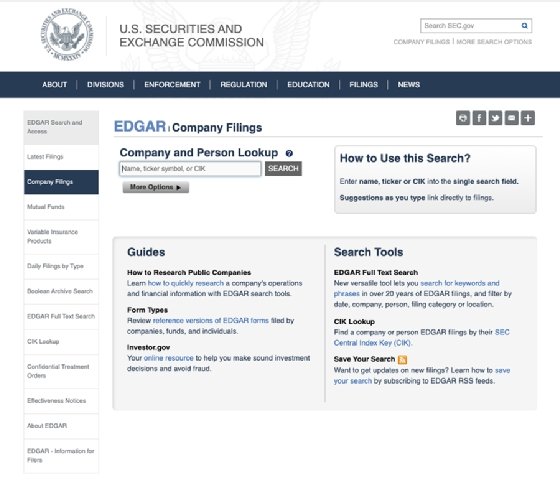Securities and Exchange Commission (SEC)
What is the Securities and Exchange Commission (SEC)?
The Securities and Exchange Commission (SEC) is the U.S. government agency in charge of the nation's securities industry. It monitors transactions, as well as the activities of financial professionals. Its mission is to promote fairness, integrity and transparency; prevent fraud and other deceptive acts; and ensure orderly and efficient markets.
The SEC was launched following the stock market crash of 1929. The agency was part of the Securities Exchange Act of 1934, which was designed to bolster confidence in capital markets. It provided corporate and retail investors with reliable information and required that individuals and corporations deal with each other fairly and honestly.
What does the SEC do?
Federal securities regulations and laws charge the SEC with a range of responsibilities, including the following:
- work with the public in a variety of ways, including educational programs and the SEC website;
- oversee securities trading in U.S. equity markets;
- monitor the U.S. fixed income market;
- check public companies' financial disclosures and statements;
- oversee registered market players, such as investment advisers, broker-dealers and transfer agents;
- monitor securities exchanges, credit rating and clearing agencies, and entities such as the Public Company Accounting Oversight Board, Financial Industry Regulatory Authority (FINRA) and Financial Accounting Standards Board; and
- provide IT-based services, such as the information made available through the Electronic Data Gathering, Analysis, and Retrieval (EDGAR) system.
Securities and Exchange Commission contact information
- Headquarters:
100 F Street, NE
Washington, D.C. 20549
- General information: (800) 732-0330
- EDGAR filer support: (202) 551-8900
- Website: sec.gov
What is EDGAR?
EDGAR is a system that enables companies and other entities to submit required information under the following laws:
- Securities Act of 1933
- Securities Exchange Act of 1934
- Trust Indenture Act of 1939
- Investment Company Act of 1940
The EDGAR database contains information that millions of companies and individuals have filed. According to the SEC, it manages about 3,000 filings a day and provides 3,000 terabytes of data a year.

What is the SEC's Regulation SCI?
The SEC created Regulation Systems Compliance and Integrity (Regulation SCI) in 2015. It's a set of rules that track the security and other technical capabilities of U.S. securities markets.
Regulation SCI came about in response to securities markets' increasing use of technology and IT automation. It provides oversight of the financial securities' markets use of IT. The goal of these rules is to minimize problems resulting from the industry's increasing dependence on technology. They also ensure there is a smooth and fast way for markets to recover when issues happen.
Issues that the regulation covers are referred to as SCI events. They include disruptions in the markets' systems, problems related to compliance, and security vulnerabilities and attacks.
Entities that Regulation SCI covers include clearing agencies, plan processors, self-regulatory groups and some alternative trading systems. These organizations must have IT policies and processes related to system capacity, integrity, resilience, availability and security. They are required to notify the SEC and take corrective action when an SCI event occurs. They also must conduct an annual review of their Regulation SCI procedures and report the results to the SEC.

How does the SEC work?
The SEC has five commissioners who serve five-year terms. No more than three of the commissioners may belong to the same political party.
The agency has six major divisions:
- The Division of Corporation Finance ensures companies disclose important information to the investing public. The division ensures information is available about companies when they initially go public and after. It also provides help to companies interpreting SEC rules and forms. And it reviews new rules and revisions to existing rules.
- The Division of Trading and Markets is in charge of developing and overseeing the standards for the securities markets. It also monitors the main players in the industry, including brokers, stock exchanges, clearing agencies and FINRA.
- The Division of Investment Management helps protect investors and encourages capital formation through oversight and regulation of the investment management industry. It administers the Investment Company Act of 1940 and Investment Advisers Act of 1940. It also monitors mutual funds and other investment services.
- The Division of Enforcement investigates securities law violations and initiates civil and criminal actions. It also prosecutes civil suits in federal courts and handles administrative proceedings.
- The Division of Economic and Risk Analysis provides the data analytics the SEC needs to pursue its mission. Its work includes policy- and rule-making, as well as support for enforcement activities.
- The Division of Examinations manages the SEC's examination program. SEC exams help organizations identify risks and improve compliance. They also help the SEC identify and pursue misconduct and improve its rules and regulations.
SEC has 11 regional offices. Its subgroups include an office of Administrative Law Judges, an Advocate for Small Business Capital Formation, an Investor Advocate, and a Strategic Hub for Innovation and Financial Technology.
Learn more about the challenges of regulatory compliance and how they differ around the world.








